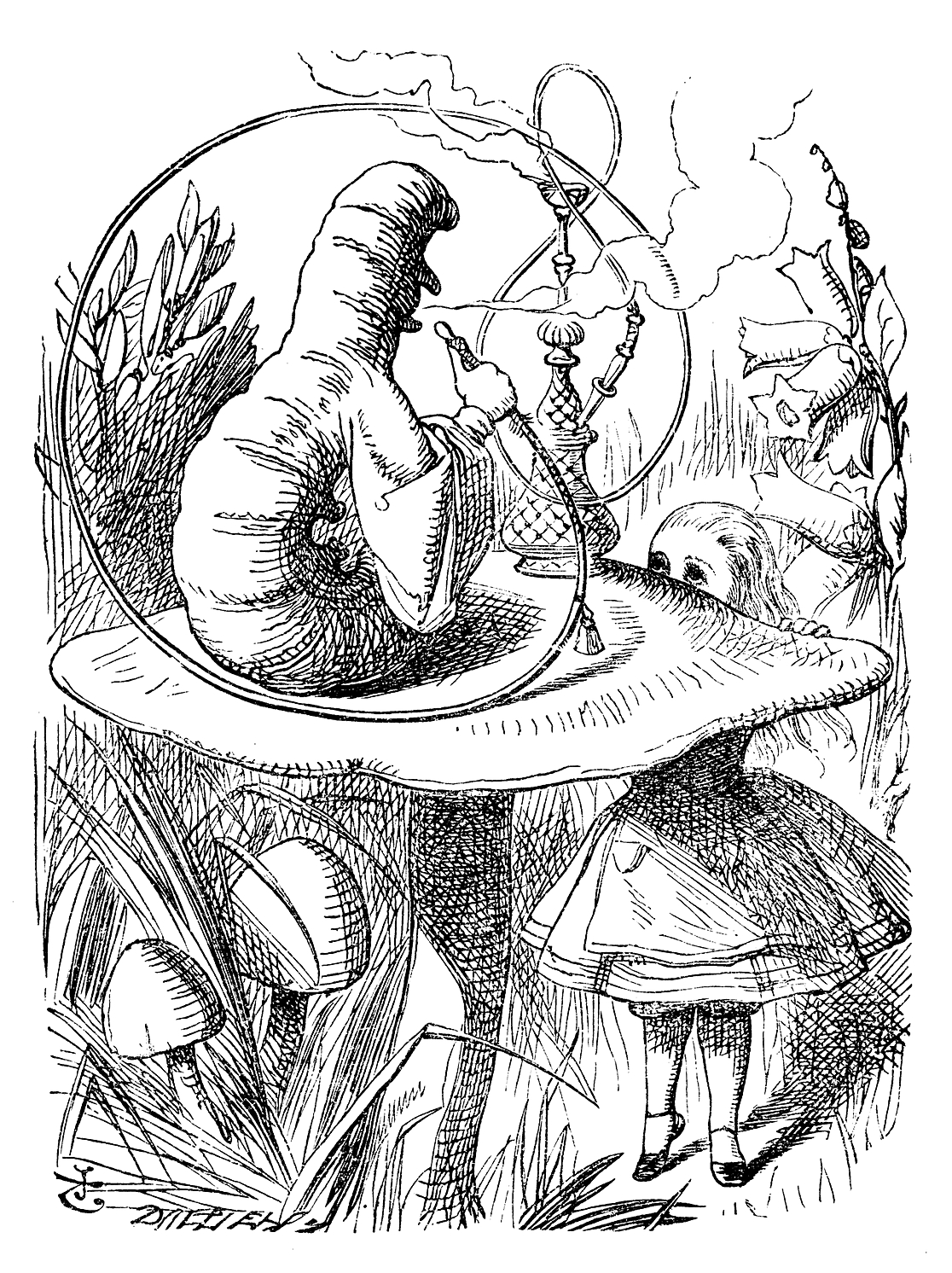The first resource I'd like to share with you is right at your fingertips...your cell phone. Yes, I know the screen is small, but I found it surprisingly easy to read a book on my cell phone and, in fact, because I could adjust the lighting or the size of the text, I found it easier even than reading a paper version, especially if the paper version has small print. Old eyes and cell phones... perfect together. I downloaded the free app IBooks onto my cell phone and scanned the titles. Don't laugh, but I chose to read Alice's Adventures in Wonderland by Lewis Carroll.
I had recently read that Alice was really not intended as a children's story, but rather as a social commentary. So, when I saw Alice on the list of free titles, I decided to give it a go. Of course, I remember seeing the Disney version, but I had never really read the actual text of the story, so I thought why not read it through the lens of social commentary. Before I began, I researched some criticisms on line and indeed I could see how Lewis Carroll might be using his story to comment on Victorian society.
One theory is that Alice is the symbol of a feminist movement. She is a rebel attempting to break out of the stereotypes of the mouse-like Victorian woman of her era. Alice is everything the Victorian woman isn't. She is confident, independent and curious. The theory proposes that Victorian women could look to Alice as a role model and think, "what would Alice do?" I found this to be the least plausible theory. I mean, Alice is pretty dim-witted at times. She's impulsive, and this trait often gets her into deeper trouble than before. For example she's seeking help from a mouse, but goes on to extol to the mouse, the mouse-catching virtues of her cat Dinah. "Duh, Alice, you're not going to get assistance from the rodent that way." Somehow, I don't think Alice should be a role model.
In the 1960's another theory developed about Alice. No surprise here...Alice is of course about drugs, dropping acid and eating magic mushrooms.
Two other theories about Carroll's purpose in writing Alice seem much more likely to me. One, is that the book is intended to explain Marxism while criticizing the highly structured class society of nineteenth century Great Britain. Carroll seems to point out the ridiculousness of classes. He appears to make a parody of the upper class. He appears to mock high society with their rules of etiquette and over indulgence and sense of superiority. Alice herself is of the upper class. She is indulged and proud. Every Christmas she believes she gets new boots simply because she deserves them. And then there is the royal class... we all remember the crazy Queen of Hearts, running around screaming "off with her head!" Hmmm, what might the author be trying to say about royalty here?
The other theory I find likely, is that Carroll was intending Alice to be a criticism of the British educational system of the day, a system that relied heavily on rote learning. Memorizing things didn't seem to work too well for Alice. We often see her bragging about the things she's learned, only to hear her recite something incorrectly.
Whatever Lewis Carroll's intention was in writing Alice, it certainly was entertaining, and the fact that I read it on my cell phone made it even more so. Though I would never encourage the banishing of paper books (I love, love, love them), I would suggest that once in a while reading a book on your cell phone isn't a bad idea. I usually read several books at one time, so if I am ever somewhere where I think, "gee I wish I had brought my book to read," a cell phone with a book app is a perfect solution.
P.S. I also discovered Lewis Carroll is a pen name! Didn't know that.
Do you have a book app on your phone? Have you any suggestions for reading on a cell phone? Leave your suggestions in the comment section.
More reading resources in future posts!




No comments:
Post a Comment
thanks for visiting. Leave a comment, I would love to hear your thoughts